After years in the kitchens of five-star hotels, Greek chef Panagiotis Siafakas has traded white tablecloths and tasting menus for campfires and cast-iron pots.
Today, he is part of Nomade et Sauvage, a roving culinary collective that prepares open-fire meals in remote forests, caves, abandoned factories, and even street corners across Greece.
The group’s back-to-the-earth cooking style, rooted in wild herbs and ancestral techniques, has drawn viral attention on social media for both its theatricality and its deep emotional resonance. “We cook in the sand, under the trees, beside rivers.
The earth is our stove,” Mr. Siafakas said in an interview with Greek outlet iefimerida.
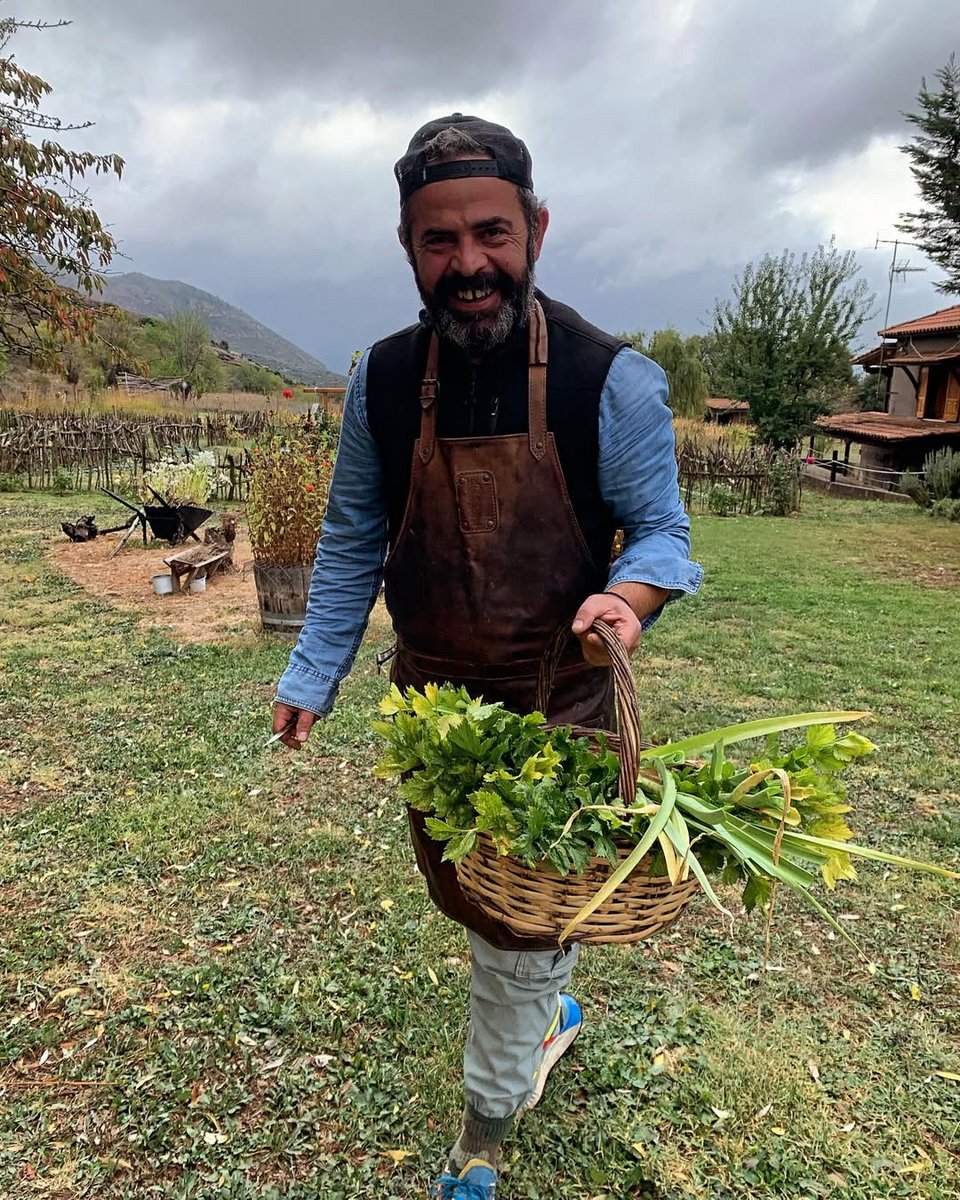
Founded several years ago by chef Iordanis Tseneklidis, Nomade et Sauvage brings high-level gastronomic experience outdoors, transforming nature into a kitchen and turning meals into immersive experiences.
Their pop-up banquets, often serving up to 700 people, have taken place from the peaks of Mount Olympus to London’s urban sprawl.
Mr. Siafakas, who hails from Ioannina and trained at the Corfu School of Tourism Professions, worked for years in luxury hospitality, including at the historic Hotel Grande Bretagne in Athens and the Palace Hotel in Madrid. But after nearly a decade in elite kitchens, he walked away to pursue a radically different culinary path — one that channels the rustic dishes of his grandmother and the flavors of his homeland in Epirus.
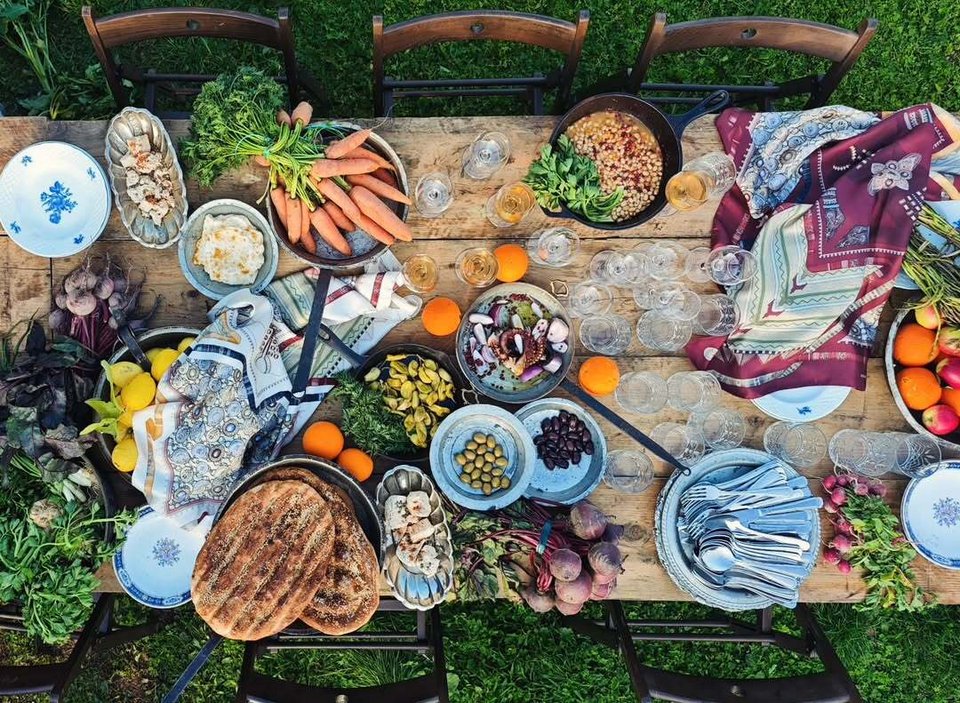
“This is not about trends,” Mr. Siafakas said. “It’s about returning to our roots. The tradition is not just our past — it’s the future of gastronomy.”
The group’s kitchen setup is fully mobile and includes wood-fired ovens, makeshift grills, and monastery-style cauldrons. They collect ingredients from nearby forests and fields, following a philosophy akin to foraging. Mr. Siafakas often participates in these foraging efforts himself, drawing on a childhood spent close to the land. His father still keeps a vegetable garden and distills homemade tsipouro, a traditional Greek spirit.
Their most extreme outing so far, according to Mr. Siafakas, was a beach on the remote island of Ereikoussa.
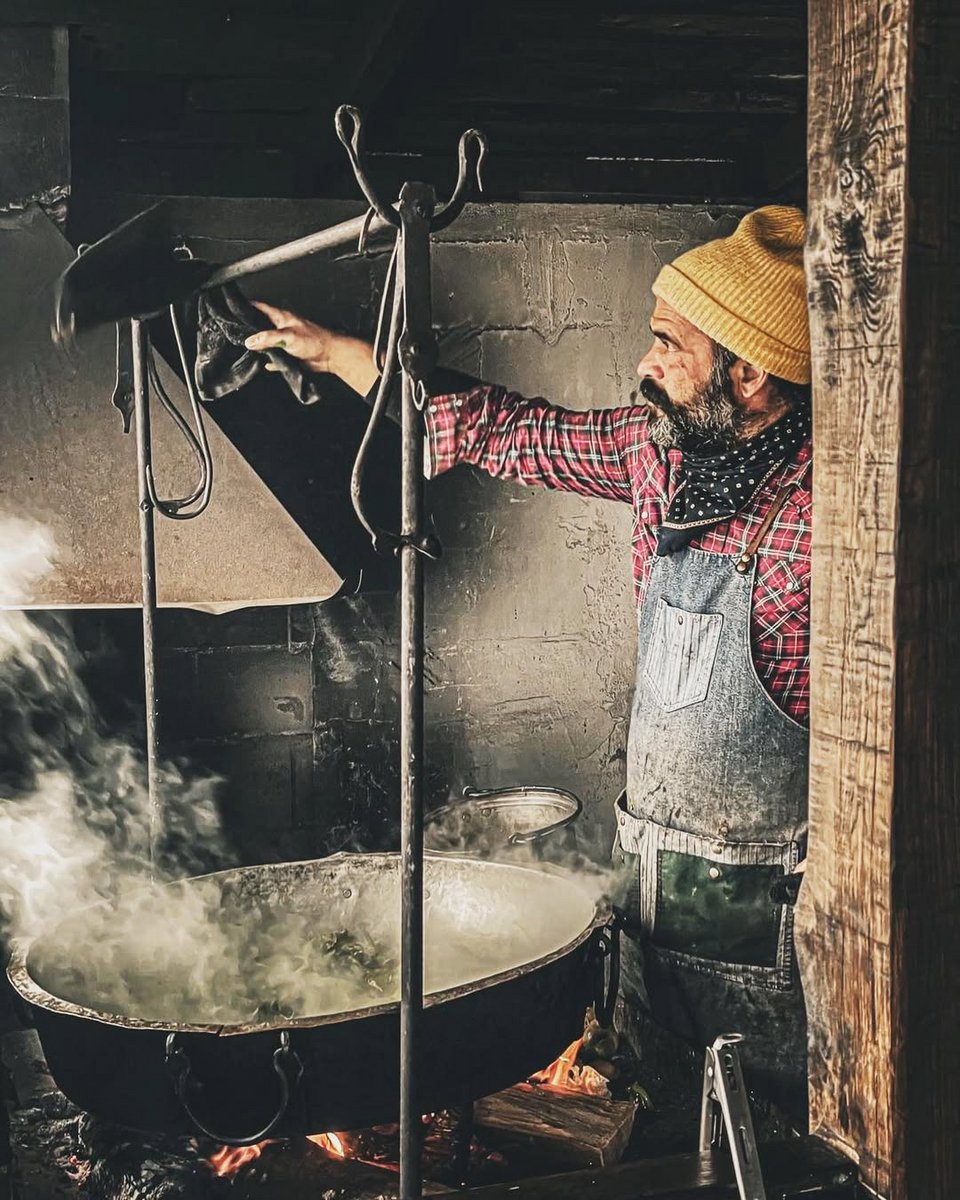
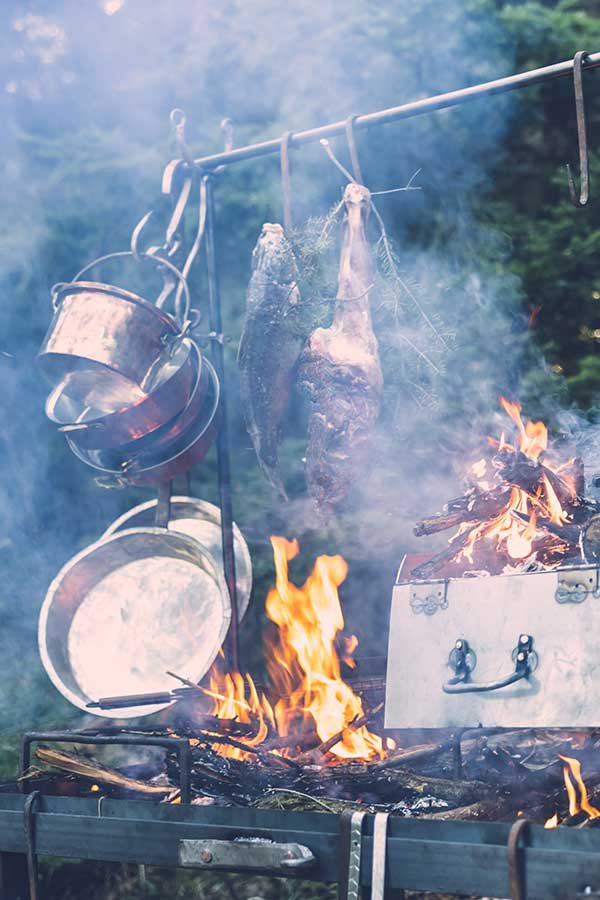
“We cooked in the middle of nowhere, with nothing — washing our pans in the sea, working in 40°C heat. But that experience left the deepest mark on me,” he said.
While the fine dining world increasingly embraces the farm-to-table movement, Mr. Siafakas believes the next real shift lies in authenticity, not novelty.
“It’s not enough for chefs to change. The audience has to want this too,” he said. He attributes the broader shift toward traditional, ingredient-focused cooking partly to economic pressures and the pandemic. “People want substance again. Not just spectacle,” he added.
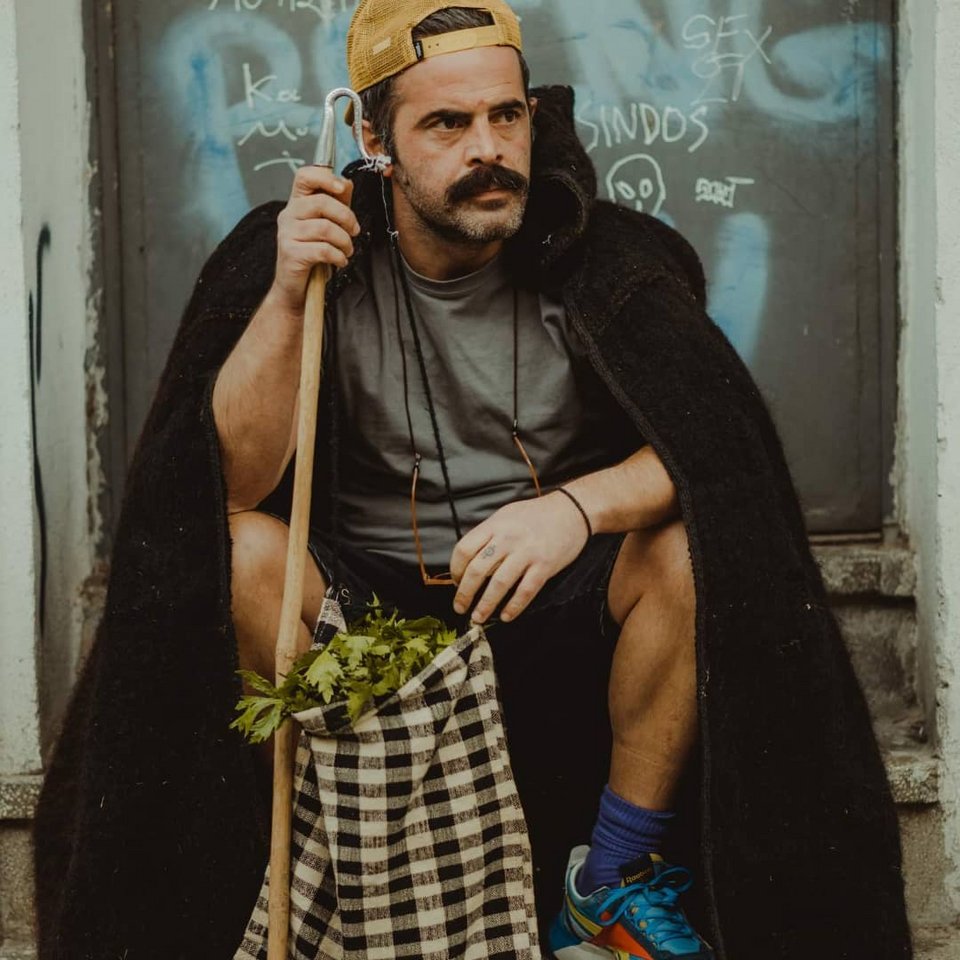
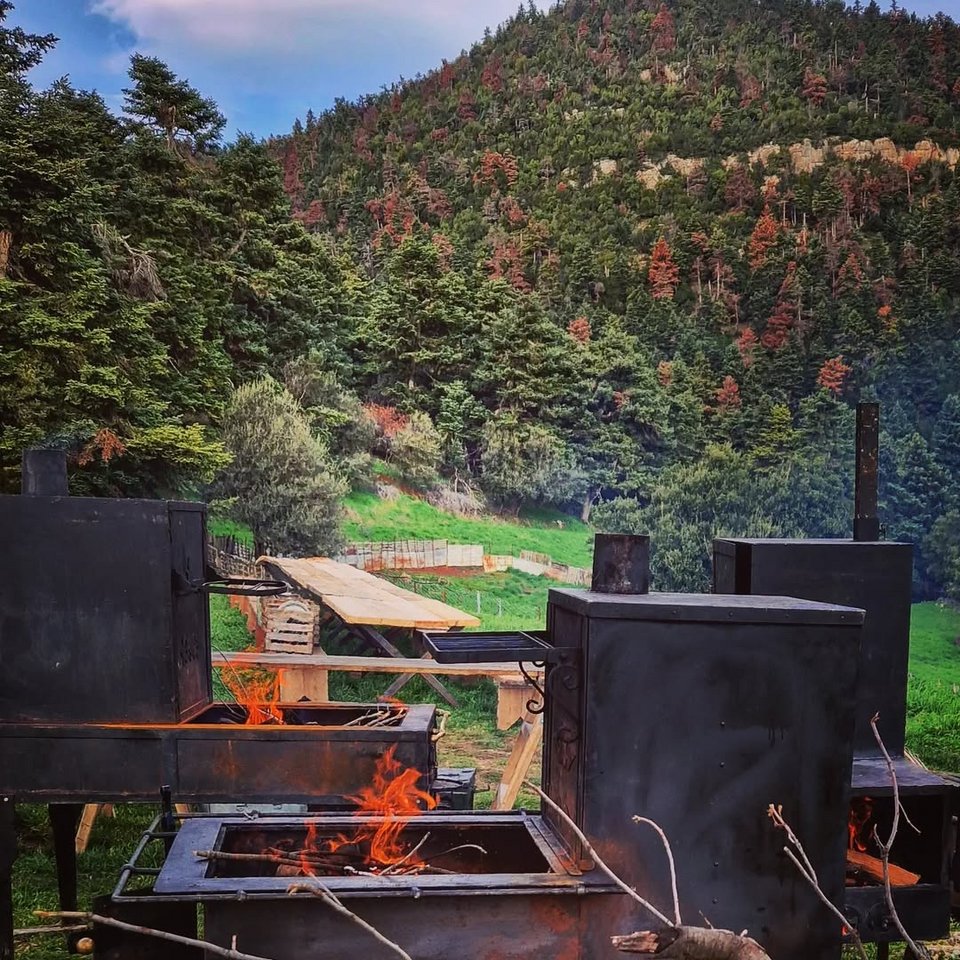
Despite their growing popularity, Mr. Siafakas insists Nomade et Sauvage is less a trend and more a way of life — a return to the fundamentals of cooking and connection.
“This is my love, my culinary truth,” he said. “To cook under the sky, with fire, from the land — that’s where I feel free.”
By Manos Livadaros
